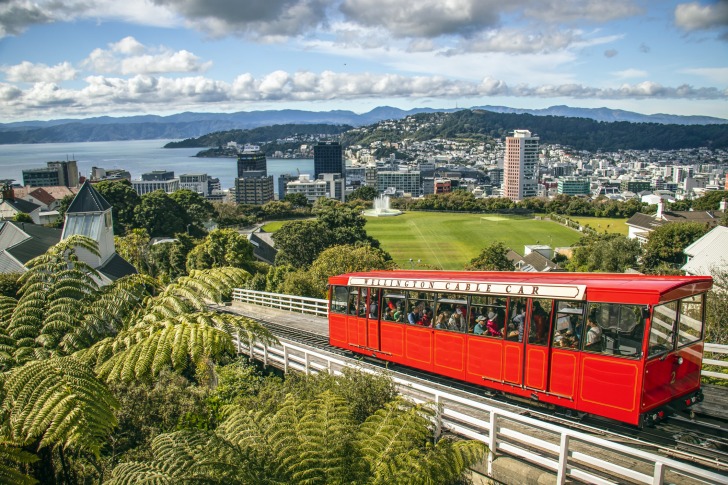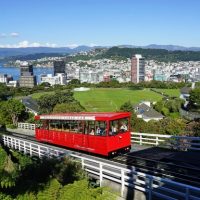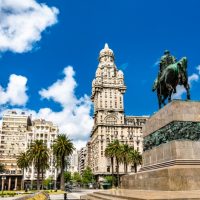New Zealand is a beautiful country known for its stunning landscapes, friendly locals, and adventure sports.
However, New Zealand also has its share of crime, like any other country.
Theft and related offenses accounted for over 156.67 thousand victim-reported crimes in New Zealand in the year ending in June 2021.
Here are New Zealand’s top 10 most dangerous cities.
Contents
10 Most Dangerous Cities in New Zealand
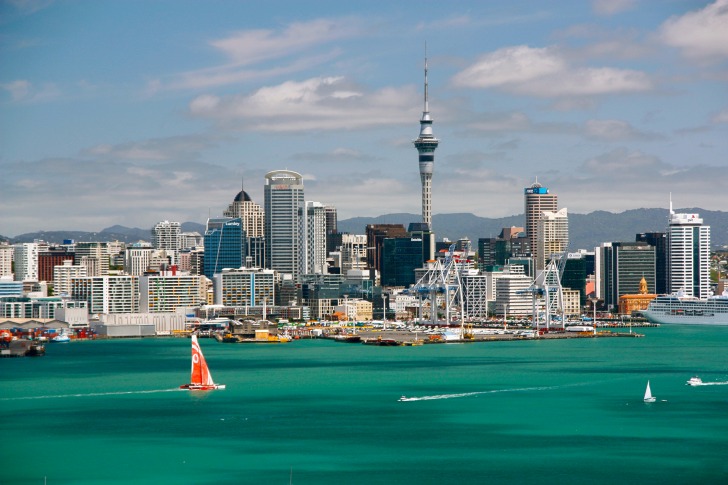
Auckland
On New Zealand’s North Island, Auckland is a vibrant city known for its culture and beauty.
However, the city’s high crime rate worries residents and visitors.
South Auckland and the central business district have high crime rates, so tourists should be cautious.
In some parts of Auckland, theft and burglary are the most common property crimes.
Therefore, tourists should avoid wearing flashy jewelry or carrying large bags.
On the other hand, in other parts of the city, gang activity is a problem.
So tourists should be aware of their surroundings.
Additionally, the central city and South Auckland have a higher violent crime rate than other parts of Auckland, and assault is one of the most reported crimes.
Auckland visitors should stay alert to avoid trouble.
Avoid late-night outings and stay in well-lit areas.
Tourists should also have local emergency numbers on their phones.
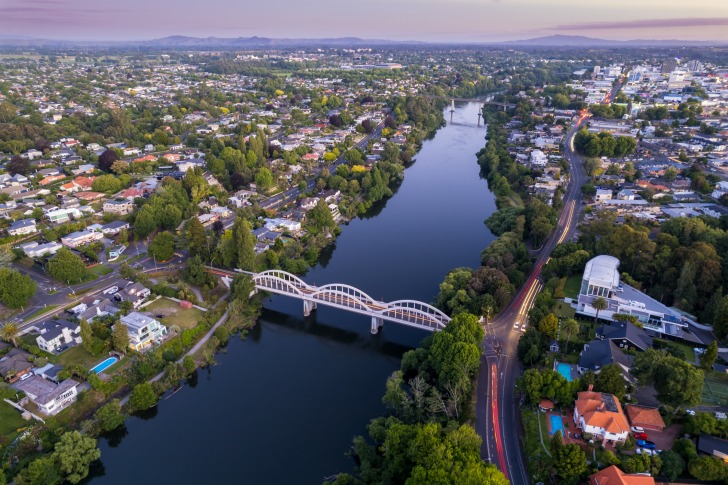
Hamilton
Hamilton is a city that offers a lot to its visitors in terms of natural beauty and cultural attractions.
However, the city is also known for having a high incidence of theft crime, which can put visitors at risk if they are not cautious.
The central business district and suburbs such as Fairfield and Melville are known to have a higher rate of theft crime compared to other areas, and visitors should take necessary precautions to ensure their safety.
Theft crime in Hamilton can take many forms, including theft from cars and burglaries.
Visitors should keep their valuables out of sight and avoid leaving them on display, even in a parked car.
It’s also a good idea to use a hotel safe to store valuable items when possible.
Burglaries are also common in some suburbs of Hamilton, and visitors should be sure to lock their doors and windows and use security features if available.
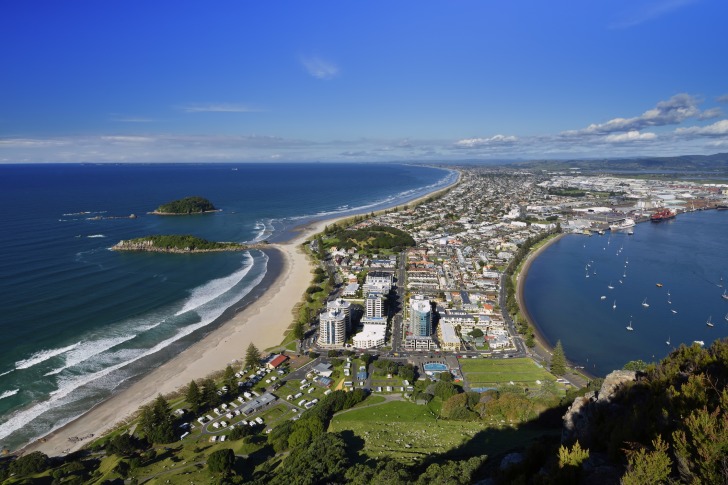
Tauranga
Tauranga, a city in the Bay of Plenty, is well known for its picturesque walks and gorgeous beaches.
However, visitors should be aware that the city has a high incidence of theft, including theft from cars and burglaries.
The Mount Maunganui beachfront and Tauranga’s central business district are common areas for theft.
Visitors are advised to keep their valuables out of sight when leaving them in their cars and avoid leaving them on display.
To ensure their safety, visitors should park their cars in well-lit areas and use a hotel safe to store their valuable items.
Additionally, visitors should stay alert when walking around the city and avoid carrying valuable items that may attract unwanted attention.
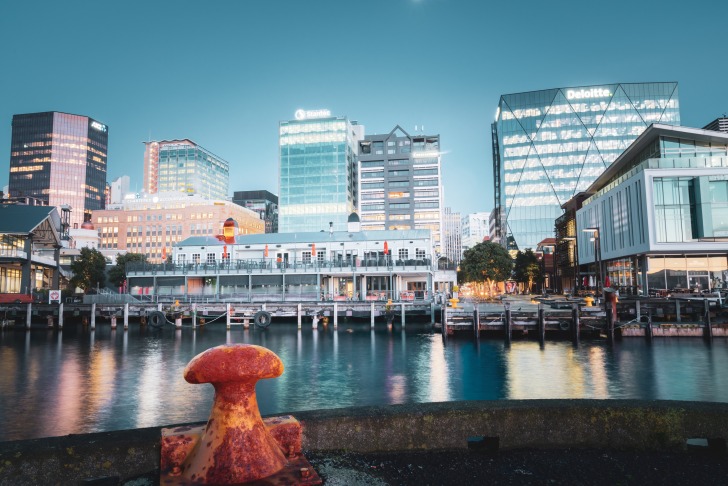
Wellington
At the North Island’s southernmost point, Wellington serves as the nation’s capital.
It’s famous for its lively culture, beautiful harbor, and abundance of outdoor pursuits.
Theft, burglary, and assault are too common in the city, especially in certain neighborhoods.
Safety-conscious behavior on the part of visitors is strongly encouraged.
Pickpocketing and vehicle burglaries are two of Wellington’s most frequently reported forms of theft.
Visitors should keep their valuables out of sight and avoid leaving them on display.
Burglaries are also common in Wellington, particularly in some outer suburbs.
Travelers are urged to use locks on all windows and doors and other safety measures while on the premises.
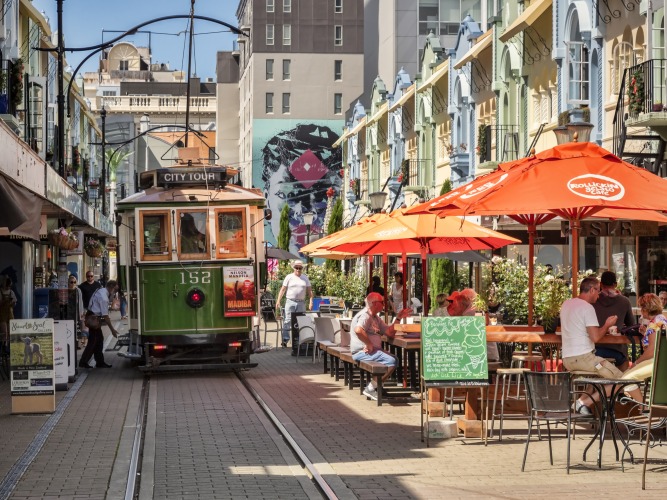
Christchurch
Christchurch is a city in the Canterbury region of the South Island, known for its stunning natural beauty and vibrant cultural scene.
However, the city has a high incidence of robberies and theft, particularly in the central business district and suburbs such as Linwood and Richmond.
Robbery is a serious crime in Christchurch, with reports of armed robberies in some areas.
Visitors should be cautious when withdrawing cash from ATMs and avoid carrying large sums.
Theft from cars is also common in Christchurch, particularly in areas such as Hagley Park and the central business district.
It is recommended that guests not leave any valuables out in the open.
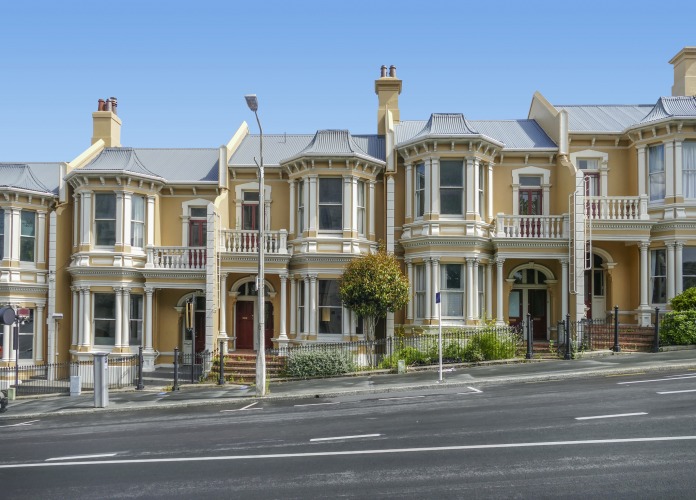
Dunedin
Dunedin is a city in the Otago region of the South Island, known for its natural beauty and rich history.
However, visitors should be aware that the city also has a high incidence of burglary and assault.
Burglary is a common crime in Dunedin, with thefts from homes being reported frequently.
Keep doors and windows locked and use security features if available.
If possible, store valuables in a hotel safe.
Assault is another concern in Dunedin, with physical attacks on tourists reported in some areas.
Visitors should be cautious and avoid walking around alone at night.
Areas such as the central business district and the student quarter are known for their nightlife, but visitors should be aware of the potential for assault and take necessary precautions.
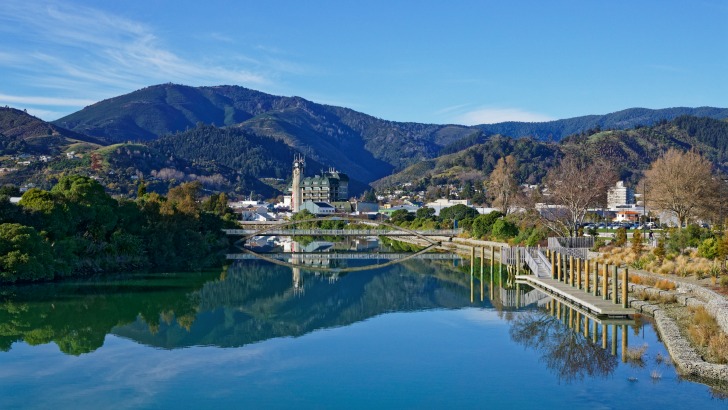
Nelson
Vacationers flock to Nelson, at the very tip of the South Island, for the pleasant temperatures it maintains all year, the stunning scenery of its coastline, and the variety of exciting outdoor activities available there.
Tourists should be aware, however, that theft is a serious problem in the city.
Theft and burglary are widespread problems in the city proper and some surrounding suburbs, including Tahunanui and Stoke.
Tourists should exercise caution when out and about and conceal their valuables.
Pickpocketing and vehicle burglary are two examples of theft crimes plaguing Nelson.
A money belt or hidden pockets can be an excellent way to keep your valuables safe and out of sight.
Wear them underneath your clothing to keep them hidden from pickpockets.
Also, always lock your car and roll up the windows when you leave it unattended.
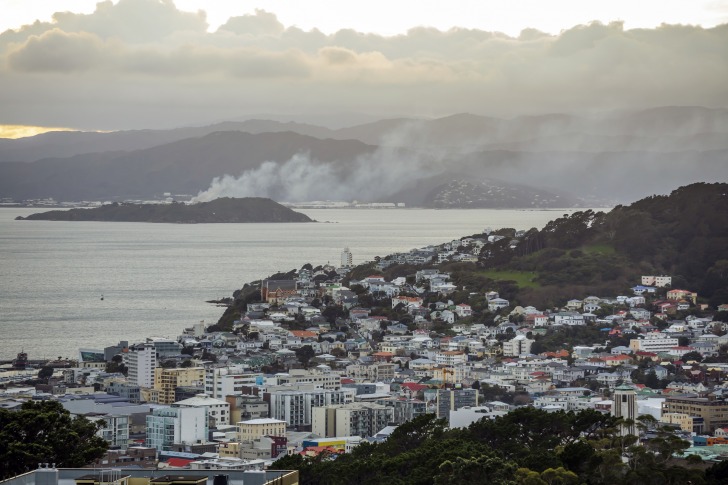
Lower Hutt
Lower Hutt is located in the Wellington region of the North Island, known for its stunning views and outdoor activities.
However, the city has a relatively high incidence of burglary and theft crime, particularly in the central business district and suburbs such as Petone and Naenae.
Residents need to take necessary precautions to ensure their safety.
Burglary is a common crime in Lower Hutt, with thefts from homes being reported frequently.
Always lock your doors and windows when you leave your accommodation.
Use deadbolts if available, and consider installing additional locks if needed.
Theft crime, including theft from cars and pickpocketing, is also a concern in some areas of Lower Hutt.
Avoid carrying items such as wallets, passports, or expensive cameras in your back pocket or anywhere easily accessible to pickpockets.
Keep your valuables in a secure bag or pocket, and use zippers or snaps to prevent easy access.
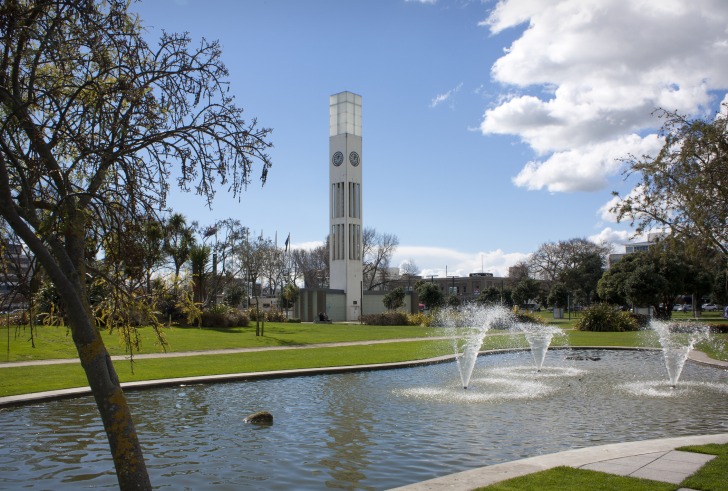
Palmerston North
Palmerston North is located in the Manawatu-Wanganui region of the North Island, known for its beautiful parks and gardens.
However, the city has a high incidence of theft and assault crimes.
Thieves often work in crowded areas, such as markets, train stations, or tourist attractions.
Stay alert and aware of the people around you, and avoid getting distracted by your surroundings.
Assault is also a common crime in Palmerston North, with reports of physical attacks on tourists being made in some areas.
Always be mindful of the people around you; if something doesn’t feel right, go with your gut.
If you feel uncomfortable, try to remove yourself as soon as possible.
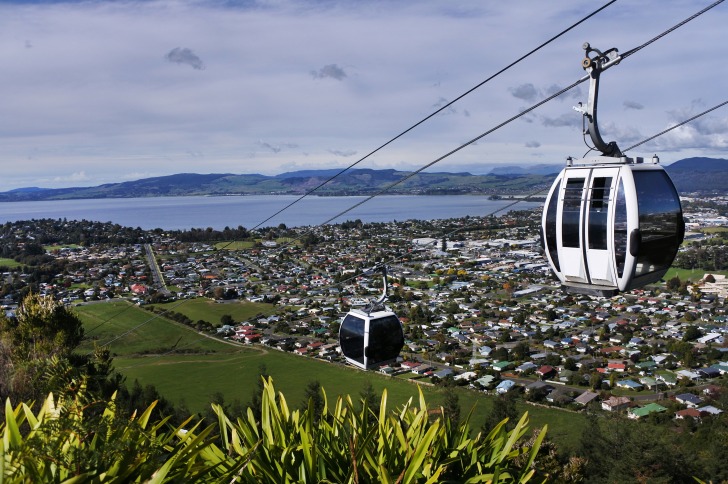
Rotorua
On the North Island’s Bay of Plenty, Rotorua is famous for its scenic landscapes and deep Maori heritage.
The city, however, has a high rate of burglary, theft, and assault.
Safety-conscious behavior on the part of visitors is strongly encouraged.
The suburbs of Rotorua, especially Glenholme and Western Heights, have a high rate of burglaries.
If your accommodation has a security system, make sure to use it.
This can include features such as alarms, cameras, or motion detectors.
Use the “Do Not Disturb” sign on your door when you are not in your room.
There have been reports of assaults on tourists in some parts of Rotorua, a cause for concern.
Try to walk with a group or take public transportation if possible.
Avoid walking in poorly lit areas or areas known to be dangerous.
5 Safety Tips for Traveling to New Zealand
The people and landscape of New Zealand are well-known for being warm and welcoming.
However, travelers should take precautions even though the country is generally safe.
Here are five safety tips for visiting New Zealand:
- Keep your passport and other important documents in a hotel safe if possible, and avoid carrying large amounts of cash.
- Always use trusted transportation services such as licensed taxis or ride-sharing services when traveling. Avoid using unmarked or unofficial vehicles, particularly at night.
- Walking, especially at night, should be done cautiously, and be aware of your surroundings. Keep to well-lit areas and avoid wandering around alone.
- Before you head out, research the areas you plan to visit. Check for any safety concerns, such as high crime rates or dangerous wildlife, and plan your activities accordingly.
- Make sure your phone is charged and with you. This can be helpful in an emergency or if you need to call for assistance.
New Zealand Safety Overview
READ THE FULL REPORT: New Zealand Safety Review
Safety Index:
- OVERALL RISK: LOW
- TRANSPORT & TAXIS RISK: LOW
- PICKPOCKETS RISK: LOW
- NATURAL DISASTERS RISK: MEDIUM
- MUGGING RISK: LOW
- TERRORISM RISK: LOW
- SCAMS RISK: LOW
- WOMEN TRAVELERS RISK: LOW
Frequently Asked Questions
Is New Zealand a safe country to visit?
Yes, New Zealand is generally a safe country to visit.
However, like any other country, some areas are more dangerous.
Visitors should research the area they’ll be visiting beforehand and take precautions to ensure their safety.
What are some common safety concerns in New Zealand?
Some common safety concerns in New Zealand include theft, burglary, and gang-related activity.
Visitors should keep their valuables out of sight, avoid dangerous areas, and stay alert when walking around.
What are some emergency numbers in New Zealand?
In an emergency in New Zealand, dial 111 for police, fire, or ambulance services.
